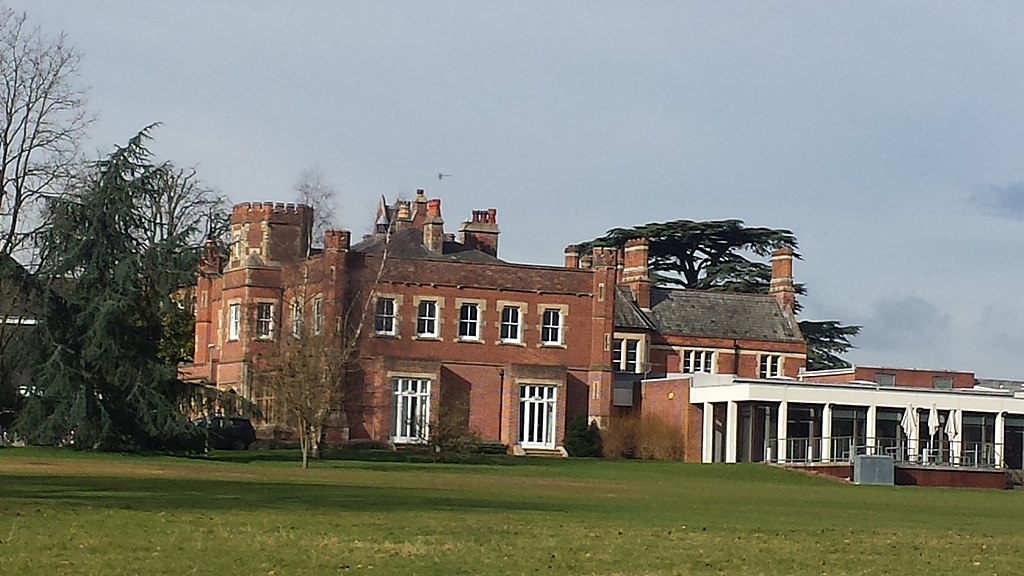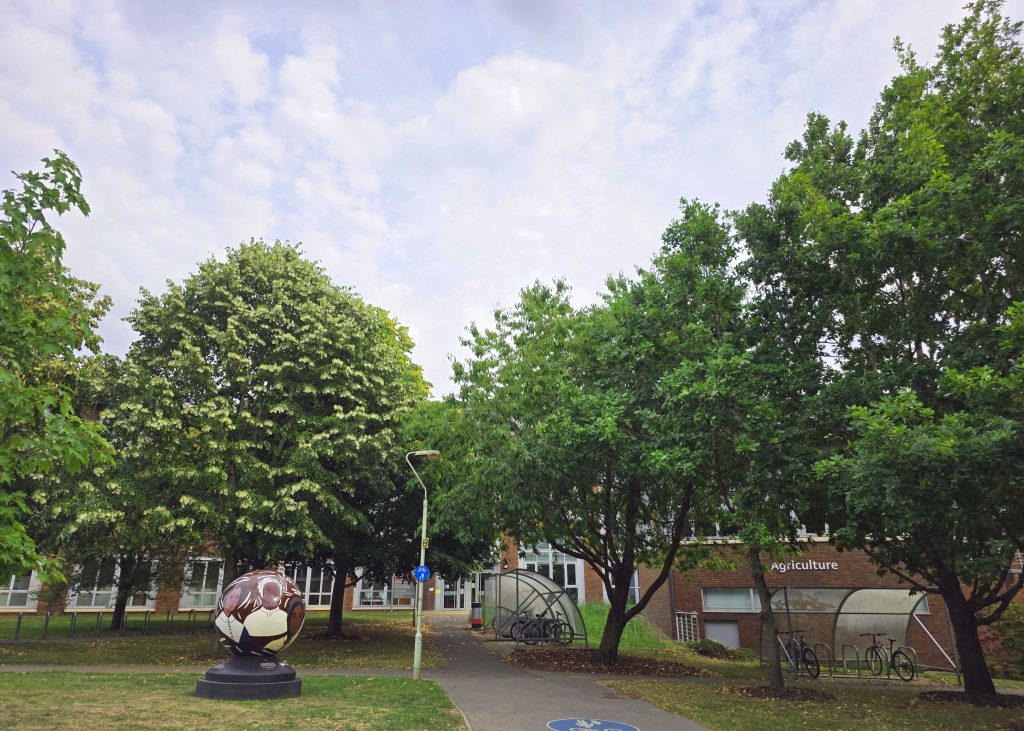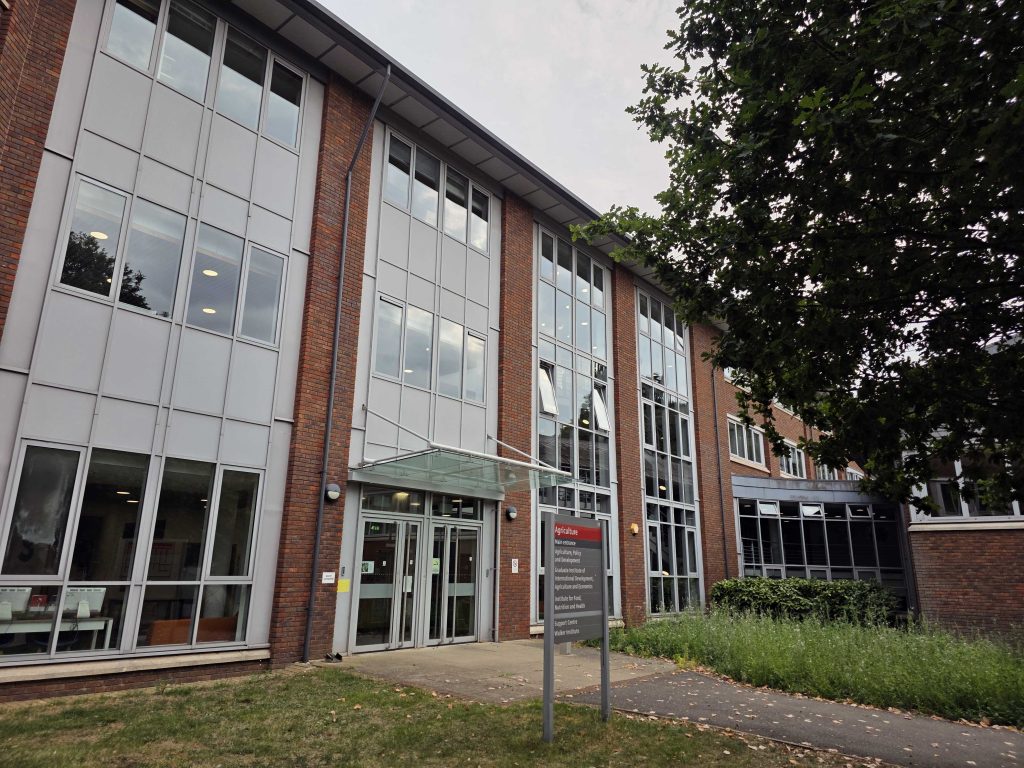The eighth annual Post-Medieval Archaeology Congress (PMAC26) will be hosted by the University of Reading in Reading, UK, on 15-17 May 2026. Our main venue is the Agriculture Department conference suite including the Nike Theatre, and rooms 1L04, 1L06 and 1L08.
The Call for Papers is now closed. The programme, including tours and events as well as sessions, will be published in 2026.
Click on the headings below to find out more about the conference.
> CALL FOR PAPERS
We invite submissions to the 8th annual Congress. Participants may submit proposals for multiple papers, sessions, posters, or other contributions or roles such as moderator or discussant. Please send titles and abstracts to conference@spma.org.uk by 15 November 2025 – the call is now closed.
All participants must register for the Congress to be able to present a paper, poster, or serve as symposia, forum, or round table organizer or discussant. For papers or posters with multiple authors, only one of the paper’s/poster’s authors must register for the Congress.
Individual Papers
Papers are presentations including theoretical, methodological, or data information that synthesize broad regional or topical subjects based upon preliminary, ongoing, or completed research. All individual papers will be 15 minutes long. The programme chair will assign individual papers and posters to sessions organized by topic, region, or time period on the basis of the proposal abstract. The Congress committee will assign each general session a chair who will coordinate the session activities.
Posters
Posters are freestanding, mounted exhibits with text, charts, maps, and images that illustrate preliminary, ongoing, or completed research projects. Bulletin boards will be provided. Authors are expected to set up their own displays and be present at their displays during their designated poster session. Authors are encouraged to include contact information on their posters and leave business cards next to their posters so viewers can contact them with questions at a later date.
Themed Sessions
Themed sessions are organized sessions of three or more papers that relate to a central theme, region, or project. There are two ways to participate in a themed session:
- Organize a themed session. We welcome people to organize themed sessions by actively searching for people to participate. The themed session organizer seeks contributions and submits all participants’ information in a single submission (see below).
- Self-nominate to designated themed sessions. We noted several important themes that emerged at last year’s PMAC and these sessions are a chance to continue the conversation.
If you would like to ‘self-nominate’ to one of these topics, include the theme (from the list below) with your Individual Paper submission.
The themes are:
- Maritime connections in the post-medieval world
- Exploring post-medieval explorations: decolonising colonial material culture
- Urban archaeologies
- Marginalised and excluded communities/centering and rediscovering voices of the voiceless
- Repeopling the post-medieval period: archaeology beyond material culture studies
- Archaeology of cooking, food, and eating
- Archaeology of drink, drugs (& rock n’ roll)
- Theory in post-medieval archaeology
- Archaeology of mountains/rural landscapes and lives
Themed session papers will be 15 minutes long.
Forums/Round Table Discussions
Rather than a series of papers, these sessions are organized around a discussion topic addressed by an invited panel. A panel should have at least three members. Audience participation is encouraged. The moderator must submit an abstract for the discussion topic and identify all forum/round table participants.
How to submit
WHEN: Submissions will be accepted from 1 August to 15 November 2025. Authors will be notified by email of the status of their submision no later than 1 December 2025.
HOW: To submit your proposal, email the following information to conference@spma.org.uk
Individual Papers: email presentation title, abstract of up to 150 words, author affiliation(s), and corresponding author email address. If you are interested in being considered for one of the designated themed sessions, please indicate the title of the session.
Posters: email poster title, abstract of up to 150 words, author affiliation(s), and corresponding author email address.
Themed Sessions: The themed session organizer lists in a single submission:
- Session title
- Session abstract of up to 150 words
- Moderator and organizer (can be the same or different people)
- a list of each participants’ presentation title, abstract of up to 150 words, author affiliation(s), and corresponding author email address.
Forums/Round Table Discussions: The Forums or Round Table organizer lists in a single submission:
- event title
- event abstract of up to 150 words
- a list of each participants’ (including the organizer) affiliation(s) and email address.
WHERE: Please send titles and abstracts to conference@spma.org.uk by 15 November 2025. Authors will be notified by email of the status of their submission no later than 1 December 2025.
All participants must register for the Congress to be able to present a paper, poster, or serve as symposia, forum, or round table organizer or discussant. For papers or posters with multiple authors, only one of the paper’s/poster’s authors must register for the Congress.
> READING HIGHLIGHTS
Reading has a lively history. By the 6th century CE there was a ford across the River Kennet. An account dated 4 January 871 of a battle between the Danes, King Ethelred and his brother Alfred the Great mentions ‘Readingum’. The Domesday Book records Reading as a substantial English town (in the largest 20%).
The town prospered with the founding of the Abbey in 1121 by Henry I. The king asked to be buried there. Other royalty buried in the abbey include Empress Matilda, William of Poitiers and Constance of York. Henry III often visited a few times each year. The royal patronage of the abbey made it a pilgrimage centre. It became one of the richest and most important religious houses of medieval England. Henry VIII’s dissolution of the monasteries destroyed much of the religious structures in 1538.
More recently, Reading is famous for the ‘four Bs’ – beer, bulbs, biscuits, and bricks. The Bs refer to the companies H & G Simonds (beer), Sutton and Sons (bulbs), Huntley & Palmers (biscuits), and S & E Collier (brickmakers). These businesses developed from the late 18th Century and continued in the town into the late 20th century.

> THINGS TO DO
Museum of English Rural Life (MERL) is the pre-eminent museum and archive for the study of the history of British agriculture, the countryside, and rural society. Museum exhibits feature objects relating to agricultural practices, rural crafts, technological innovation, and the diversity and complexity of rural life. MERL archives include documents and ephemera of agricultural engineering firms such as Ransomes, seed producers such as Suttons, and trade literature. Many landscape architecture businesses record hundreds of individual farms across the UK. They reveal day-to-day farming routine dating back to the 17th century. Records and testimony made by people include the memoirs of children evacuated to the countryside during the Second World War; research papers of scientists Hugh Macdonald Sinclair and R.G. Stapledon and the historian W.E. Tate; and documents from the author H.E. Bates and the poultry expert David Scrivener.
Reading Museum in the city centre has excellent permanent galleries and changing exhibitions throughout the year. Outstanding collections include the contemporary Aldermaston Pottery, 300 Huntley and Palmer biscuit tins, and a fine Victorian copy of the Bayeaux Tapestry. The Sir John Madejski Gallery is home to a wonderful art collection. The Silchester Gallery displays finds from the Roman town. The Story of Reading begins in prehistory but also has major medieval and post-medieval archaeology collections on show.
During the Norman Conquest the area of the University of Reading’s Whiteknights campus was known as the Manor of Earley. The Marquess of Blandford acquired the estate in 1798. He invested substantially in library acquisitions and elaborate gardens. The legacy of his interest in the diversity of plants is an impressive range of tree plantings that visitors can enjoy in a self-guided campus Tree Walk. PMAC26 conferencegoers can also enjoy a self-guided nature trail, including getting lost in the Wilderness, feeding the ducks that call Whiteknights Lake home, and looking out for springtime butterflies on the Meadows and bees on the Pollinator Lawns,. Visit the Rewilding Area to see the change over time, and enjoy the Wooded Meadows. The beautiful cherry trees of the Harris Garden will be in bloom in May. The trail takes roughly 30 minutes to walk around. You can complete it as a circular walk, starting and finishing close to central campus bars and cafes, or visit in sections.


Images by Chris j wood – Own work, CC BY-SA 4.0.
> CONFERENCE REGISTRATION
Registration will open closer to the Congress, when we will advertise the full range of ticket prices. Keep in mind, join the Society for Post-Medieval Archaeology to benefit from significantly discounted ticket prices, plus all the benefits of membership.
We will publish the preliminary programme for PMAC26 here once registration closes. All papers at PMAC26 will be delivered in person.
Advance conference registration for SPMA will be:
- SPMA member, £95
- Non-member, £150
- SPMA student member, £45
- Student non-member, £80
The SPMA offers a travel award to students attending PMAC. The deadline for receipt of applications is 15 January each year and awardees are notified by 15 February. Find out more on the Paul and Yolande Courtney Congress Bursary Award page.
The link for registration will appear on this page in advance of the Congress.
> TRANSPORTATION AND LODGING
Reading is conveniently located west of London and is a transportation hub, with train and bus connections to all of the London-area airports, including 24-hour RailAir bus service from Heathrow Airport and trains from Gatwick to Reading. The local Reading bus service also has 24-hour service from Reading town centre, including Reading Station, to Whiteknights campus (a 10-15 minute trip). The town centre and Whiteknights campus area have many options for dining and lodging. Most AirBnBs are in east and central Reading. These hotels are all within a 5-minute drive or bus journey to the University of Reading. The University has also negotiated the best rates with some of the hotels so PMAC26 attendees can book directly with the hotel.
The conference will be held in the School of Agriculture, Policy and Development Conference Centre. The School buildings are nestled in The Wilderness. It is a picturesque part of the campus.easily accessed from the Earley Gate entrance.


